#happy new year! almost!
Explore tagged Tumblr posts
Text
If Epic the Musical was an anime
#fanart#epic the musical#2d animation#animation#WHAT AM I SUPPOSED TO DO NOW THATS ITS JOEVER#happy almost new year!#odysseus
6K notes
·
View notes
Text
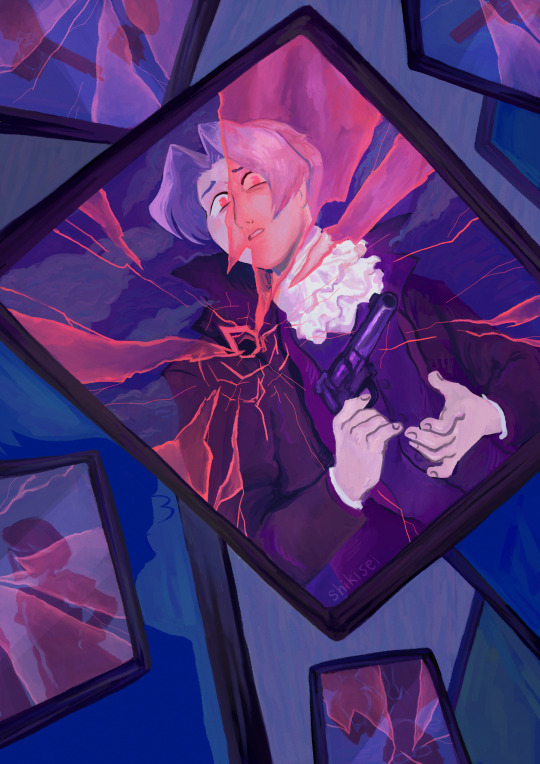
say your goodbyes to this year
#(and to all you've ever known)#ace attorney#almost christmas#<- last years art is in there if u want to compare#i feel like ive improved a lot !!!#i was still very new to aa back then. i'm very appreciative of all the support you all have given me in the last year 🙇 thank you!#hope everyone has a good holiday season~#and happy almost christmas means it wasnt christmas. for all those who celebrate#it is midnight here. so it COUNTS
1K notes
·
View notes
Text

Snow Bunnies ❄️🐇🩵
I don't think Natsuo's girlfriend has an official color pallet or name, so I went with an albino mouse color. I kinda regret that now since she looks a lot like Rei in this, but it's too late now I guess...
#Rei is taking the pic don't worry 😉#I almost drew everyone in summer clothes since the todo fam is cold resistant but I'll save that for something else#happy belated holidays and new years 😅#dabi#touya#touya todoroki#todoroki touya#toya todoroki#todoroki toya#shouto#shoto#shouto todoroki#todoroki shouto#shoto todoroki#todoroki shoto#fuyumi#fuyumi todoroki#todoroki fuyumi#natsuo#natsu#natsuo todoroki#todoroki natsuo#natsu todoroki#todoroki natsu#todoroki family#todo fam#natsuo's girlfriend#natsu's girlfriend#bnha#mha
516 notes
·
View notes
Text
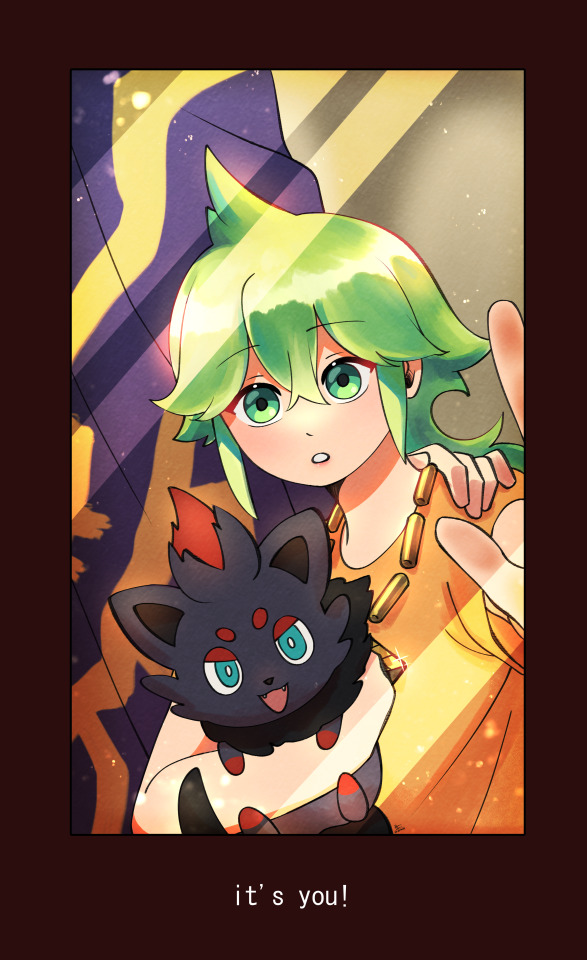
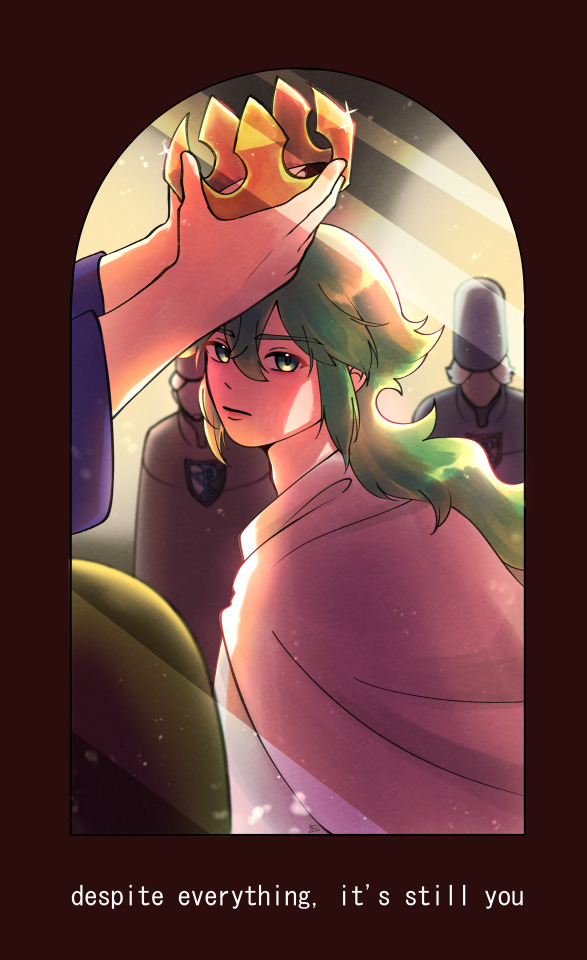
"but there is nothing more beautiful and terrifying than innocence."
open for better quality | no reposts
#n harmonia#natural harmonia gropius#pokemon#pokemon black and white#fanart#myart#doodle#can't believe they dropped the rawest line of the century in a mainline pokemon game. unova remakes when??#for context one of my friends sent me a video of this trend w/ kvh and it made me think of N so here we are#me the whole time drawing this: please don't let me fall back into my N phase please don't let me fall back into my N phase-#but yeah i haven't drawn him in like what. almost 10 years?? and i'm really proud of how the 2nd piece turned out#younger minty would be so happy i can draw him prettily now lol#also (not so new) trivia drop: did you know g.hetsis' hydreigon has a moveset that can singlehandedly wipe N's party??#i only just recently found this out and it has horrifying implications#anyway!! tldr i love and missed my boy so i drew him ^^
2K notes
·
View notes
Text
𝘞𝘰𝘶𝘭𝘥 𝘠𝘰𝘶 𝘒𝘪𝘭𝘭 𝘔𝘦, 𝘑𝘦𝘳𝘶𝘴𝘢𝘭𝘦𝘮?

Thank you all for your support and happy new year!
#trigun#trigun maximum#vash the stampede#volaeart#this will be the last art I post in 2023!#tysm for the support on here even if I don’t post much#fun fact abt this drawing is it was actually my art final for my college class and I had to +#go up in front of my classmates and teacher and explain my drawing process ((embarrassing))#I had a hard time with this drawing and there was many times where I almost gave up#shoutout to the couch trauma server for keeping me sane#my favorite part of this drawing is the hair and the black parts of it#very vague volume 10 reference haha#anyways! happy new year everyone 🤍
2K notes
·
View notes
Text

















ATINY twitter (pt. 16/?)
#happy almost new year#let's ALL not talk about yunho. ever#ateez#atiny twitter#yunho#wooyoung#yunwoo#choi san#san#woosan#seongjoong#matz#seonghwa#hongjoong#mingi#yeosang#atzblogging#kpop#mine#jeong yunho#jung wooyoung#park seonghwa#kim hongjoong#song mingi#kang yeosang
304 notes
·
View notes
Text


doodles, wips and unfinished things from October 2024 up until yesterday? I just wanted to post something because it's been a long time since I posted anything and realized that I didn't finish much or post anything in months!
#bsd#bungou stray dogs#bungo stray dogs#bsd dazai#bsd chuuya#bsd art#bsd verlaine#rimlaine#bungo stray dogs dazai#my art#please I want to draw rimlaine properly one day I just threw this in since SB manga release was so recent asdfghjkl#me typing tags but not sure if anything I wrote made sense since my head feels empty#I'm working on some things#hopefully I can post properly soon?#happy new year?? lmao its almost February uhh#queuing this
250 notes
·
View notes
Text
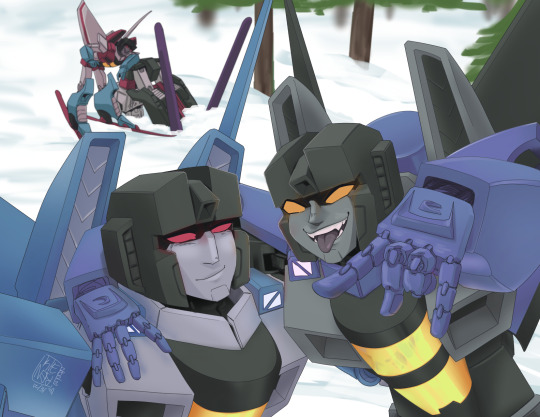
Happy new year!!
Hehe, continuation of last week's card!
@nocturnalsleuth's tags inspired me u_u

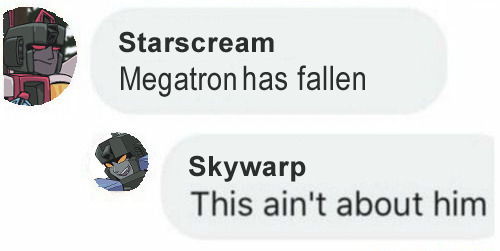
#skywarp#thundercracker#starscream#megatron#transformers#tc#warp#seekers#seeker trine#command trine#robots#digital art#my art#drawing#illustration#happy new year!#i know it's posting early for PST but hear me out ok listen#i am at the almost-end of the timezone jitterbug#the new year has begun already in a significant portion of the planet
2K notes
·
View notes
Text
Steph's Year of Recovery
So! Danny noticed that a new face had made it's way into town. Two new faces actually, an older lady known as Dr Leslie, and a girl about his age called Steph.
He first met them when he was at the hospital for one of his parents. They had stood too close to an explosion again, and he met them while he was in the waiting Area.
Dr Leslie was a strict but obviously caring older woman, who seemed to be the one taking care of Steph as a kind of maternal figure, or maybe more like an Aunt. She greeted him simply and then walked away to talk with the Secretary, leaving him to talk to Steph.
Steph was a blond girl in a Wheelchair, and he could see bandages piking out of her clothes as he talked to her. She explained that she had been in an Accident a few weeks ago that left her wheelchair bound for a while, and that she had come to Amity for their surprisingly good Medical Centers.
He and Steph got along really well, and by the end of it he asked her for her Number so they could continue talking later. They stayed in touch, and when she was finally permitted to leave the Hospital, he introduced her to his friends. They all got along like a House on Fire, both figuratively and in one memorable case very literally (Vlad had pissed them off okay!)
Eventually Steph recovered enough that she moved from a Wheelchair to Crutches, and their shenanigans got even more chaotic (Vlad hadn't even pissed them off, this time was just for fun)
The only thing Danny could complain about was the fact that Steph was hiding something from them.
She said that she had been in an Accident a while ago, which was why they had come to Amity in the first place. But Danny knew it was more than that.
He could sense lingering traces of Death coming from her after all.
...
Steph honestly loved her current life.
Sure she had lost everything, her home, her health, her friends, her life, but she had gained new things too! Like Danny and the Gang! They were honestly some of the best friends she had ever had, and for some reason they just clicked with her instantly.
Danny was interesting and funny, Sam was vegan and a badass, Tucker was smart and witty, they all fit with her personality perfectly! It almost felt like she bad been friends with them for years. (She ignored the way her heart skipped a beat when she saw them)
But she still couldn't shake the sense that they were hiding something from her.
She knew it had something to do with the Ghost Problem in the town. And wasn't that a kicker, there was a whole Supernatural Ghost Outbreak in this Town and nobody knew about it. Dr Leslie had said that Amity was off the map enough to hide from Bruce, but she hadn't mentioned it was hidden from the Justice League itself!
Danny, Sam, and Tucker definitely knew more about it than they let on however. Whenever a Ghost Attack would happen, at least one of them would rush off with some practiced excuse and return after the Ghost Attack was over all dirty. She could guess what was going on, and she really didn't like it.
(This had killed her, she had died doing what they were doing, she didn't want to lose them)
Eventually she had to confront them, coincidentally on the same day they decided to confront her.
"Are you Vigilantes?" / "Did you die?"
"..."
"What?" / "What?"
#Dpxdc#Dp x dc#Dcxdp#Dc x dp#Danny Phantom#Dc#Dcu#Stephanie Brown#Stephanie Browns Death#Steph actually did die to Black Mask#Dr Leslie didn't manage to save her but did manage to bring her back#How she did it is up to you#But because if that Steph needs Physical Therapy and Treatments only found in Amity#Amity is also secluded enough that Batman won't find them there#Steph knows she died but is willfully ignoring it to the point of almost repressing it#Especially because she doesn't know how she came back to life#She doesn't like that her brand new friends are also Vigilantes because being a Vigilante is what got her killed#She doesn't want them to die like she die#She doesn't want to lose her new friends#Trauma#Steph is Traumatized#Also all of them are 17 in this#Stephs age when she died is very vague but 17 is the most reliable middle ground#So the Trio has been Vigilantes for 3 years now#They know what they are doing and have a system so they can share the workload#Sam and Tucker still have their powers#So they can help Danny with the workload#Idk if Steph would develop Powers from the Treatment or her Resurrection but I kind of like the idea#Also yes this is Poly Eternal Trio + Steph cause she deserves happiness#I NEED more Steph Ships cause she deserves more attention
917 notes
·
View notes
Text

Last post of the year!!! :333
#first thing I’ve drawn in weeks is ghost boys kissing lmao#happy new years chat!!!#I’ve had this blog for almost a year now so I’m gonna try redrawing my old Frankenstein art😝😝#the dead boy detectives#dead boy detectives#edwin payne#charles rowland#dbd#dbda#payneland#payneland fanart
237 notes
·
View notes
Text
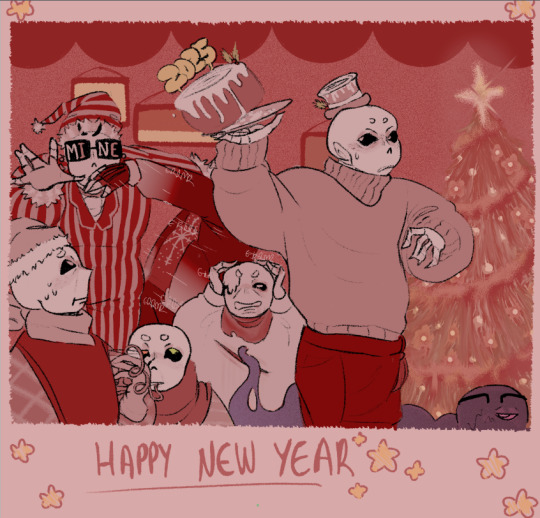
HEY HAPPY NEW YEAR (three days late) I FINALLY MANAGED TO DRAW SOMETHING SEMI DECENT FOR THE OCCASION
#bittensketches#utmv#myart#latte (ccino sans)#nightmare sans#swap sans#underswap sans#ink sans#geno sans#fresh sans#error sans#i almost forgot to tag error imma be so for real#i love when i draw error and fresh in the same drawings guys i love retroglitch did you know#anyway#happy new year!!!!#hope y'all's started off better than mine did lmao
202 notes
·
View notes
Text

Boddyyy 🤪
305 notes
·
View notes
Text

nervous laughter ensues...........
#mr. puzzles#mr puzzles#mr puzzles art#mr puzzles fanart#mrpuzzles#smg4#smg4 art#smg4 fanart#my art#happy new year!!!!!!!!!!! time is so scaryyy how has this guy almost been in my brain for a year already#he needs to start paying rent LOL#my beloathed <3
219 notes
·
View notes
Text

Late as always, but another year of wings, swords and the absolutely best bois <3
#las!art#artists on tumblr#art vs artist#i'll also be rebranding to a new handle in January#remember the best boi? the one in the last panel here#yeah that one <3#i've been tired of using the nick i came up with when I was 12#in 2018 i was like 'god I want to change my handle#but what if nobody will remember me'#thus i spent another six to seven years with the name I wasn't really comfourtable with for various personal reasons anymore#sigh#can't change it over at ptn but small victories i suppose!#I've been also going around as only Alas/Las for almost two years now anyway#time to seal the deal#vent over <3#happy new year folks!
176 notes
·
View notes
Text

Art vs Artists 2024
Thank you always for all the support <3
#art vs artist#2024#happy new year everyone#I read almost every kind message and tag on my posts and the support means the world fr#rinamata05 art#aa art
196 notes
·
View notes
Text
patience being tested. being forced by a bizarre unfortunate situation to adhere to university requirement technicality by taking this simple basic elementary "introduction to environmental history" class.
this class is from facilitators/program which do, like, "history of the American frontier" or "history of fishing and hunting" and still basically subscribe to that old-school twentieth-century idealization and celebration of characters like Teddy Roosevelt and reverence for a mythical arc-of-history-bent-towards-justice narrative of the often-clumsy but ultimately-benevolent US federal government and its mission to "save nature" through the miracle of "sustained yield," while heroic federal land management agencies and "heritage" institutions lead to way, staffed by exceptional individuals (appeals to nostalgia for the frontier and an imagined landscape of the American West; ego-stroking appeals to flattering self-image that center the environmentalist or academic). where they invoke, y'know, ideas like "ecology is important because don't you enjoy cross-country skiing in The Woods with your niece and nephew? don't you like hunting and fishing?" which makes it feel like a time capsule of appeals and discourses from the 1970s. and it invokes concept of "untouched wilderness" (while eliding scale of historical Indigenous environmental relationships and current ongoing colonial violence/extractivism). but just ever-so-slightly updated with a little bit of chic twenty-first-century flair like a superficial land acknowledgement or a reference to "labor histories" or "history from below," which is extra aggravating when the old ideologies/institutions are still in power but they're muddying the water and diluting the language/frameworks (it's been strange, watching words like "multispecies" and "Anthropocene" over the years slowly but surely show-up on the posters, fliers, course descriptions, by now even appearing adjacent to the agri-business and resource extraction feeder programs, like a recuperation or appropriation.) even from a humanities angle, it's still, they're talking at me like "You probably didn't know this, but environmental history is actually pretty entangled with political and social events. In fact, we can synthesize sources and glean environmental info from wacky places like workers' rolls in factories, ship's logs, and poetry from the era." and i'm nodding like YEP.
the first homework assignment is respond to this: "Define and describe 'the Anthropocene'. Do you think 'the Anthropocene' is a useful concept? Why or why not?" Respond in 300 words.
so for fun, right now in class, going to see how fast i can pull up discussion of Anthropocene-as-concept solely from my old posts on this microblogging site.
---
ok, found some
---
I think that the danger in any universal narrative or epoch or principle is exactly that it can itself become a colonizing force. [...] I’m suspicious of the Anthropocene as concept for the very reason that it subsumes so many peoples, nations, histories, geographies, political orders. For that reason, I think ideas like the Anthropocene can be a useful short-hand for a cluster of tangible things going on with the Earth at the moment, but we have to be very careful about how fluid and dynamic ideas become concretized into hegemonic principles in the hands of researchers, policymakers, and politicians. There’s so much diversity in histories and experiences and environmental realities even between relatively linked geographies here in Canada [...]. Imagine what happens when we try to do that on a global scale - and a lot of euro-western Anthropocene, climate change and resilience research risks doing that - eliding local specificities and appropriating knowledge to serve a broader euro-western narrative without attending to the inherent colonial and imperial realities of science and policy processes, or even attending to the ways that colonial capitalist expansion has created these environmental crises to begin with. While we, as a collective humanity, are struggling with the realities of the Anthropocene, it is dangerous to erase the specific histories, power-relations, political orders that created the crisis to begin with. So, I’m glad that a robust critique of the Anthropocene as a concept is emerging.
Text by: Words of Zoe Todd, as interviewed and transcribed by Caroline Picard. “The Future is Elastic (But it Depends): An Interview with Zoe Todd.” 23 August 2016.
---
---
---
The Great Acceleration is the latest in a series of human-driven planetary changes that constitute what a rising chorus of scientists, social scientists, and humanists have labeled the Anthropocene - a new Age of Humans. [...] But what the Anthropocene label masks, and what the litany of graphs documenting the Great Acceleration hide, is a history of racial oppression and violence, along with wealth inequality, that has built and sustained engines of economic growth and consumption over the last four centuries. [...] The plantation, Sidney Mintz long ago observed, was a “synthesis of field and factory,” an agro-industrial system of enterprise [...]. Plantation legacies, along with accompanying strategies of survival and resistance, dwell in the racialized geographies of the United States’ and Brazil’s prison systems. They surface in the inequitable toxic burdens experienced by impoverished communities of color in places like Cancer Alley, an industrial corridor of petrochemical plants running along the Mississippi River from New Orleans to Baton Rouge, where cotton was once king. And they appear in patterns of foreign direct investment and debt servitude that structure many land deals in the Caribbean, Brazil, and sub-Saharan Africa [...]. [C]limatologists and global change scientists from the University of London, propose instead 1610 as a date for the golden spike of the Anthropocene. The date marked a detectable global dip in carbon dioxide concentrations, precipitated, they argue, by the death of nearly 50 million indigenous human inhabitants [...]. The degradation of soils in the tobacco and cotton-growing regions in the American South, or in the sugarcane growing fields of many Caribbean islands, for example, was a consequence of an economic and social system that inflicted violence upon the land and the people enslaved to work it. Such violent histories are not so readily evident in genealogies that date the Anthropocene’s emergence to the Neolithic Revolution 12,000 years ago, the onset of Europe’s industrial revolution circa 1800, or the Trinity nuclear test of 1945. Sugarcane plantations were already prevalent throughout the Mediterranean basin during the late middle ages. But it was during the early modern era, and specifically in the Caribbean, where the intersection of emerging proto-capitalist economic models based on migratory forced labor (first indentured servitude, and later slavery), intensive land usage, globalized commerce, and colonial regimes sustained on the basis of relentless racialized violence, gave rise to the transformative models of plantations that reshaped the lives and livelihoods of human and non-human beings on a planetary scale. [...] We might, following the lead of science studies scholar Donna Haraway and anthropologist Anna Tsing, more aptly designate this era the Plantationocene. [...] It is also an invitation to see, in the words of geographer Laura Pulido, “the Anthropocene as a racial process,” one that has and will continue to produce “racially uneven vulnerability and death." [...] And how have such material transformations sustained global flows of knowledge and capital that continue to reproduce the plantation in enduring ways?
Text by: Sophie Sapp Moore, Monique Allewaert, Pablo F. Gomez, and Gregg Mitman. "Plantation Legacies." Edge Effects. 22 January 2019. Updated 15 May 2021. [Bold emphasis added by me.]
---
---
---
Geologists and other scientists will fight over [the definition of the beginning start-date of the Anthropocene] in scientific language, seeking traces of carbon dioxide that index the worst offenses of European empire which rent and violated the flesh, bodies, and governance structures of Indigenous and other sovereign peoples in the name of gold, lumber, trade, land, and power. [...] The stories we tell about the origins of the Anthropocene implicate how we understand the relations we have with our surrounds. In other words, the naming of the Anthropocene epoch and its start date have implications not just for how we understand the world, but this understanding will have material consequences, consequences that affect body and land.
Text by: Heather Davis and Zoe Todd. On the Importance of a Date, or Decolonizing the Anthropocene. ACME An International Journal for Critical Geographies. December 2017. [Bold emphasis added by me.]
---
---
---
From Aime and Suzanne Cesaire, C. L. R. James, Claudia Jones, Eduoard Glissant, through Sylvia Wynter, Christina Sharpe, and so many others, critical anticolonial and race theory has been written from the specific histories that marked the Black Atlantic. [...] Glissant also reminds us, secondly, of how cunning the absorptive powers of [...] liberal capitalism are - how quickly specific relations are remade as relations-erasing universal abstractions. [...] This absorptive, relations-erasing universalism is especially apparent in some contemporary discourses of […] liberalism and climate collapse - what some call the Anthropocene - especially those that anchor the crisis in a general Human calamity which, as Sylvia Wynter has noted, is merely the name of an overdetermined and specific [White] European man. […] [T]he condition of creating this new common European world was the destruction of a multitude of existing black and brown worlds. The tsunami of colonialism was not seen as affecting humanity, but [...] these specific people. They were specific - what happened to them may have been necessary, regrettable, intentional, accidental - but it is always them. It is only when these ancestral histories became present for some, for those who had long benefitted from the dispossession [...], that suddenly the problem is all of us, as human catastrophe.
Text by: Elizabeth Povinelli. “The Ancestral Present of Oceanic Illusions: Connected and Differentiated in Late Toxic Liberalism.” e-flux Journal Issue #112. October 2020.
---
The narrative arc [of White "liberal humanism"] [...] is often told as a kind of European coming-of-age story. […] The Anthropocene discourse follows the same coming-of-age [...] script, searching for a material origin story that would explain the newly identified trajectory of the Anthropos […]. Sylvia Wynter, W.E.B. DuBois, and Achille Mbembe all showed how that genealogy of [White subjecthood] was [...] articulated through sixteenth- through nineteenth-century [historiographies and discourses] in the context of colonialism, [...] as well as forming the material praxis of their rearrangement (through mining, ecological rearrangements and extractions, and forms of geologic displacements such as plantations, dams, fertilizers, crops, and introduction of “alien” animals). […] As Wynter (2000) commented, “The degradation of concrete humans, that was/is the price of empire, of the kind of [Eurocentric epistemology] that underlies it” (154).
Text by: Kathryn Yusoff. “The Inhumanities.” Annals of the American Association of Geographers, Volume 11, Issue 3. November 2020.
---
---
---
As Yarimar Bonilla suggests in regard to post-Irma-and-Maria Puerto Rico, “vulnerability is not simply a product of natural conditions; it is a political state and a colonial condition.” Many in the Caribbean therefore speak about the coloniality of disaster, and the unnaturalness of these “natural” disasters [...]. Others describe this temporality by shifting [...] toward an idea of the Plantationocene [...]. As Moore and her colleagues write, “Plantation worlds, both past and present, offer a powerful reminder that environmental problems cannot be decoupled from histories of colonialism, capitalism, and racism that have made some human beings more vulnerable [...].” [W]e see that contemporary uneven socioecologies associated with the rise of the industrial world ["the Anthropocene"] are based [...] also on the racialized denial and foreshortening of life for the sacrificial majority of black, brown, and Indigenous people and their relegation to the “sacrifice zones” of extractive industry. [...] [A]ny appropriate response to the contemporary climate emergency must first appreciate its foundations in the past history of the violent, coercive, transatlantic system of plantation slavery; in the present global uneven development, antiblackness, and border regimes that shape human vulnerability [...] that continues to influence who has access to resources, safety, and preferable ecologies [...] and who will be relegated to the “plantation archipelagoes” (as Sylvia Wynter called them) [...].
Text by: Mimi Sheller. “Thinking Beyond Coloniality: Toward Radical Caribbean Futures.” Small Axe (2021), 25 (2 (65)), pages 169-170. Published 1 July 2021. [Bold emphasis added by me.]
---
---
---
Indigenous genocide and removal from land and enslavement are prerequisites for power becoming operationalized in premodernity [...]; it was/is a means to operationalize extraction (therefore race should be considered as foundational rather than as periphery to the production of those structures and of global space). [...] Wynter suggests that we […] consider 1452 as the beginning of the New World, as African slaves are put to work on the first plantations on the Portuguese island of Madeira, initiating the “sugar-slave” complex - a massive replantation of ecologies and forced relocation of people […]. Wynter argues that the invention of the figure of Man in 1492 as the Portuguese [and Spanish] travel to the Americas instigates at the same time “a refiguring of humanness” in the idea of race. [...] The natal moment of the 1800 Industrial Revolution, […] [apparently] locates Anthropocene origination in […] the "new" metabolisms of technology and matter enabled by the combination of fossil fuels, new engines, and the world as market. […] The racialization of epistemologies of life and nonlife is important to note here […]. While [this industrialization in the nineteenth century] […] undoubtedly transformed the atmosphere with […] coal, the creation of another kind of weather had already established its salient forms in the mine and on the plantation. Paying attention to the prehistory of capital and its bodily labor, both within coal cultures and on plantations that literally put “sugar in the bowl” (as Nina Simone sings) […]. The new modes of material accumulation and production in the Industrial Revolution are relational to and dependent on their preproductive forms in slavery […]. In 1833, Parliament finally abolished slavery in the British Caribbean, and the taxpayer payout of £20 million in “compensation” [paid by the government to slave owners for their lost "property"] built the material, geophysical (railways, mines, factories), and imperial infrastructures of Britain and its colonial enterprises and empire. [...] A significant proportion of funds were invested in the railway system connecting London and Birmingham (home of cotton production and […] manufacturing for plantations), Cambridge and Oxford, and Wales and the Midlands (for coal). Insurance companies flourished [...]. The slave-sugar-coal nexus both substantially enriched Britain and made it possible for it to transition into a colonial industrialized power […]. The slave trade […] fashioned the economic conditions (and institutions, such as the insurance and finance industries) for industrialization.
Text by: Kathryn Yusoff. "White Utopia/Black Inferno: Life on a Geologic Spike". e-flux Journal Issue #97. February 2019. [Bold emphasis added by me.]
#sorry for being mean#instructor makes podcasts about cowboys HELP ME#and he recently won a New Business award for his startup magazine covering Democrat party politics in local area HELP#so hes constantly performing this like dance between new hip beerfest winebar coolness and oldfashioned masculinity#but hes in charge of the certificate program so i have to just shut up and keep my head down for approximately one year#his email address is almost identical to mine and invokes enviro history terms but i made mine long before when i was ten years old#so i could log in to fieldherpforum dot com to talk about enviro history of distribution range changes in local reptiles and amphibians#sir if you read my blog then i apologize ive had a long year#and i cant do anything to escape i am disabled i am constantly sick im working fulltime i have NO family i have NO resources#i took all of this schools graduate level enviro history courses and seminars years ago and ran the geography and enviro hist club#but then left in final semester because sudden hospitalization and crippled and disabled which led to homelessness#which means that as far as any profession or school is concerned im nobody im a retail employee#i was doing conference paper revisions while sleeping on concrete vomiting walking around on my cane to find outdoor wifi#and im not kidding the MONTH i got back into a house and was like ok going back to finish the semester the school had#put my whole degree program and department in moratorium from lack of funding#and so required starting some stuff from scratch and now feel like a hostage with debt or worsening health that could pounce any moment#to even get back in current program i was working sixteen hours a day to pay old library fines and had to delicately back out of workplace#where manager was straight up violently physically abusive to her vulnerable employees and threatened retaliation#like an emotional torturer the likes of which i thought existed only in cartoons#and the week i filed for student aid a massive storm had knocked out electricity for days and i was clearing fallen tree debris#and then sitting in the dark in my room between job shifts no music no phone no food with my fingers crossed and i consider it a miracle#sorry dont mean to dramatize or draw attention to myself#so actually im happy you and i are alive
134 notes
·
View notes